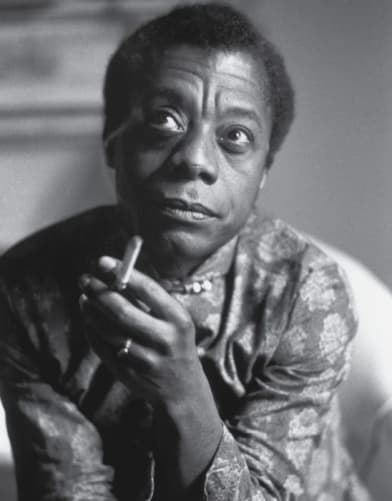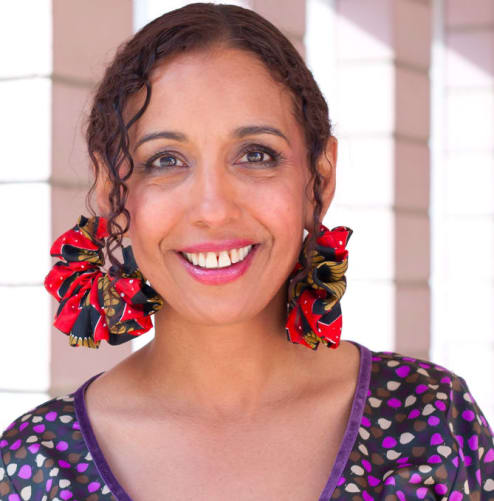History of Black Women in Biel
«If I didn’t define myself for myself, I would be crunched into other people’s Fantasies for me and eaten alive» (Audre Lorde)
We are collecting money to write a book about the history of Black women in Biel/Bienne. In this book we want to document the biographies, everyday life and the creation, working and thinking of people who are barely heard in Switzerland. We are the three publishers Fork Burke, Myriam Diarra and Franziska Schutzbach. We have been carrying the plan for this project for a while. Now the time is right to implement it. With our work we want to advance our vision of an open, solidary and pluralistic society.
For this it is necessary to show that such a society is already there, and that it holds a great wealth: With the book we want to show that women from the African diaspora shape the culture and history of Switzerland in many ways, and that there is much to learn from them.
Background of this project
More than 60 years ago, the African-American writer James Baldwin came to Switzerland and found that most Swiss have never seen a black person in their lives. Baldwin felt like an attraction: «If I sat in the sun for more than five minutes some daring creature was certain to come along and gingerly put his fingers on my hand, astonished that the color did not rub off», he wrote in 1955 in «Stranger in The Village».
Much has changed since then, the Swiss society is becoming more and more plural, Black people are part of everyday life and will continue to shape Switzerland in the future. Due to its bilingualism Biel is a central place of Black Swiss history, migration and life. Black people came and come to Biel from different countries and for different reasons. Many were born here as Swiss, others come from America, Africa, many are asylum seekers.
Hardly anyone knows their story. Our book wants to change that. The focus is on women, because the voices of women of color were and are least heard.
In the book, Black women from different backgrounds and generations tell about their lives and experiences and give insights into their perspectives and ways of thinking. At the same time, current research into the history of Black people in Switzerland is incorporated. Other elements of the publication are photography as well as literary and other artistic contributions.
With the project, we build on previous publications on visualizing Black History in Switzerland or in Europe, they are our role models, for example: «Terra Incognita? Der Treffpunkt Schwarzer Frauen in Zürich» (2013), «Black Berlin. Die deutsche Metropole und ihre afrikanische Diaspora» (2013) und «Farbe bekennen. Afro-deutsche Frauen auf den Spuren ihrer Geschichte» (1986).
WHY YOU SHOULD SUPPORT THIS BOOK
For a diverse world and society: We locate our book in the activist tradition of a self empowering ’History from below’. Such approach needs the courage to speak out, a longing for a better society, perseverance, solidarity and financing. The latter is the hardest to get, partly because marginalized people often do not have appropriate lobbies and networks because of their marginalization. We are therefore dependent on people who, with smaller and larger amounts, support projects that at first glance have nothing to do with them. People who, however, recognize at a second glance that a pluralistic and solidary society can only function if people look beyond their own concerns and are ready - for example with a financial contribution - to become multipliers of diversity.
For future generations: This project is not just about us and the concrete local women who will play a role in the book. It’s about a longer-term perspective, about providing narratives and analysis for future generations of Black people (and everyone else) in Switzerland. Among other things, it is about our Black children and grandchildren, who should not stand without their own historiography and identification options. We hope that current and future Black generations in Switzerland will be provided with narratives, testimonies and assessments that will make it clear that they have a history that has not been forgotten.
Black children in Swiss schools have so far been confronted with white history. This gives them little identification and makes it difficult to develop a sense of belonging. Let’s imagine that our book will be in the libraries, in bookstores and private places, perhaps in the teaching of local schools, and that at best there will be more books and documentation. And so that today’s blank space of Black voices in Switzerland can be filled a little bit.
THE PUBLISHERS
FORK BURKE is a Detroit born poet of the African diaspora. She came to Switzerland seven years ago. Fork Burke studied Literature at the New School University in New York. Publications include Licking Glass poems and poetic essays. Her latest Spoken Word recording is Durch die Blume. Burke is a mother and is deeply involved with African History (ancient, pre-colonial Africa) and the constant expressions of Afrofuturism. Since she lives in Switzerland, the fact of living as a Black woman in a white majority society has become much more virulent again.
MYRIAM DIARRA is a Movement Educator and Therapist. She completed her studies in Basel. She is one of the first Black Swiss born in Biel from a so-called «mixed marriage». Her father came to Biel in the 1970s as a student from Mali (via Russia), her mother is from Biel. She knows what it means to assert herself as a Black woman in a predominantly white environment. Last but not least, she also has experience with being in male domains: She was one of the first female Djanes in Biel. She lives with her family in Biel.
FRANZISKA SCHUTZBACH came as a child from Germany to Switzerland, as a naturalized white Swiss she lives with her family currently in Basel, previously in Biel. She is a gender researcher, activist, author and teaches at various universities. Her research interests include health policy, international policies of reproduction, as well as anti-feminism and new-right ideologies. The intensive exchange with Myriam Diarra and Fork Burke as well as other encounters with women of color have influenced her and have turned some of her activist focus on the intersectional interfaces of race, migration and gender.
What happens with your support contributions?
With crowdfunding we finance research and writing, photography, graphics and design as well as translations. If more than 15’000 CHF come together, this will allow us to additionally finance events and reading tours.
The crowdfunding was technically and creatively supported, implemented and accompanied by Daniel Peter. Many many thanks!






